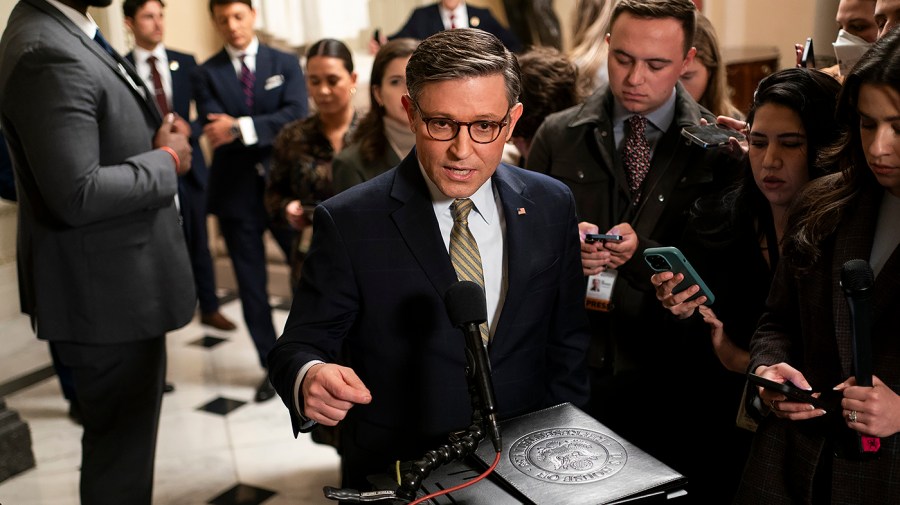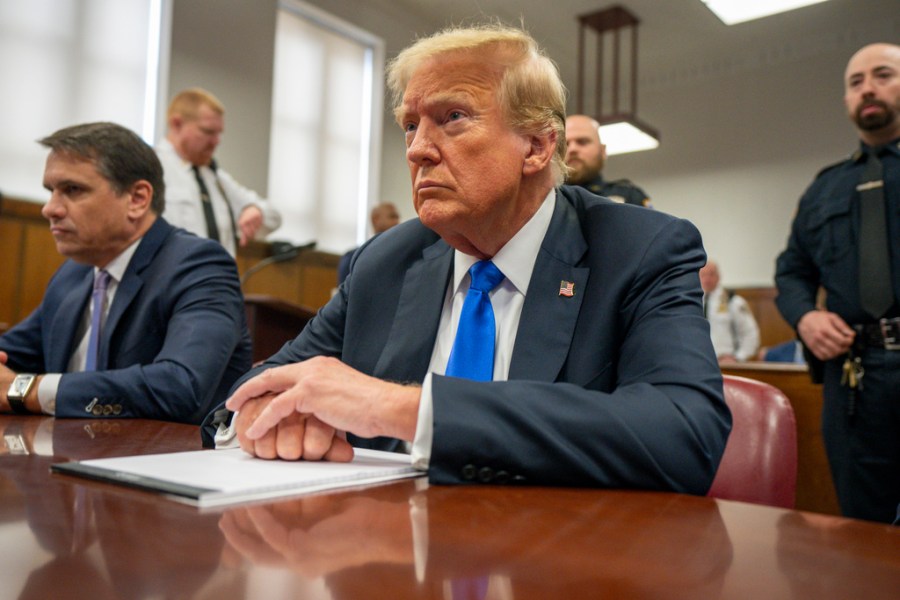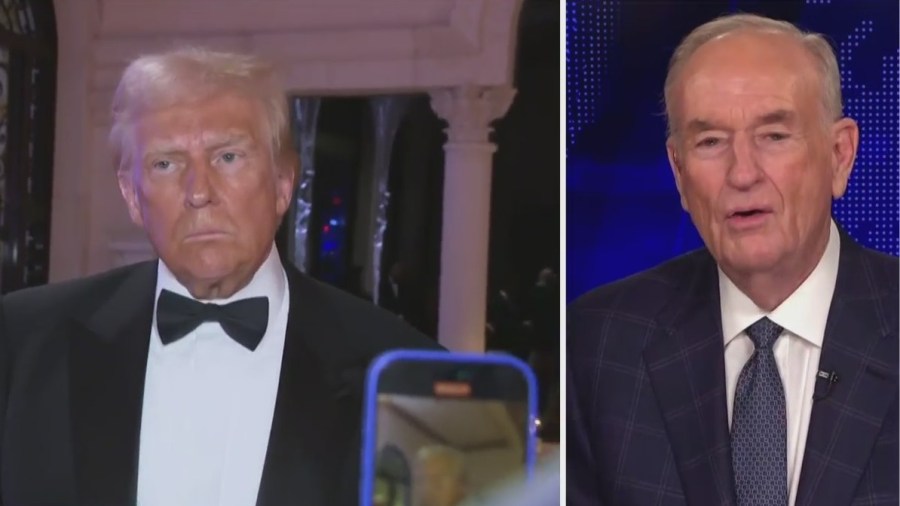
Speaker math: Breaking down how many votes Johnson needs to keep his gavel
House Speaker Mike Johnson (R-La.) heads to the House floor on Friday in hopes of being formally reelected Speaker.
While Johnson has the endorsement of President-elect Trump to remain Speaker, one Republican is pledging to oppose him, and several others are not committing to supporting Johnson. That has raised questions about whether he can win enough votes to keep his gavel, given the House GOP’s razor-thin majority.
In short, Johnson can only afford to lose one Republican vote for Speaker — assuming every member is present and voting for a candidate. But the details can get complicated.
The Speaker election is the first order of business for the House on the opening day of the new Congress, which is on Jan. 3 at noon, as dictated by the Constitution.
By practice, the House can conduct no business until it elects a Speaker, meaning the chamber will be paralyzed until it does so. That scenario was last seen at the start of the 118th Congress in January 2023, when it took former Speaker Kevin McCarthy (R-Calif.) 15 ballots over four days to clinch the gavel.
Here’s how the math breaks down:
The Speaker is elected by a majority — not a plurality — of House members voting for a candidate by name.
On the first day of the new Congress on Friday, there are expected to be 219 Republicans, 215 Democrats, and one vacancy given that former Rep. Matt Gaetz (R-Fla.) says he will not return to take his seat, putting the total number of members at 434.
Since a majority of 434 is 218, that means Johnson needs 218 votes in order to win the Speakership, assuming every member is present and voting for a candidate.
Democrats signal they will all vote for House Minority Leader Hakeem Jeffries (D-N.Y.). In Speaker battles last year, Democrats never saw any defections.
Rep. Thomas Massie (R-Ky.) says he will vote for someone other than Johnson, angered by his handling of spending issues, Ukraine aid and other matters. If every other Republican votes for Johnson, he can still win the Speakership. In that scenario, the total would be 218 Johnson, 215 Jeffries and one vote for another candidate, still delivering Johnson a majority of the votes.
But if one other Republican joins Massie in voting for someone other than Johnson, he does not get the gavel. In that scenario — 217 Johnson, 215 Jeffries, two other — no one would be elected Speaker since no one would have a majority of votes, and the House would vote again.
The math gets more complicated if a member is absent or votes “present,” since the Speaker needs to be elected by only a majority of those voting for a candidate.
Rep. Victoria Spartz (R-Ind.), a Republican who has also not committed to supporting Johnson despite Trump’s endorsement, voted “present” during several Speaker rounds before McCarthy was elected.
In a scenario where Massie votes for another candidate and Spartz votes “present,” Johnson can still win. The breakdown would be 217 Johnson, 215 Jeffries, one vote for another candidate and one present, handing Johnson the gavel because he won a majority of the 433 votes for Speaker.
But a scenario where Massie votes for a candidate other than Johnson and two members vote “present” could tank Johnson on that Speakership vote. If the vote is 216 Johnson, 215 Jeffries, one vote for another candidate and two present, Johnson loses because 216 is not a majority of the 432 votes cast for Speaker.
Any absences on either the Republican or Democratic side could also change the number of GOP defections Johnson can afford, lowering the threshold needed to win.



